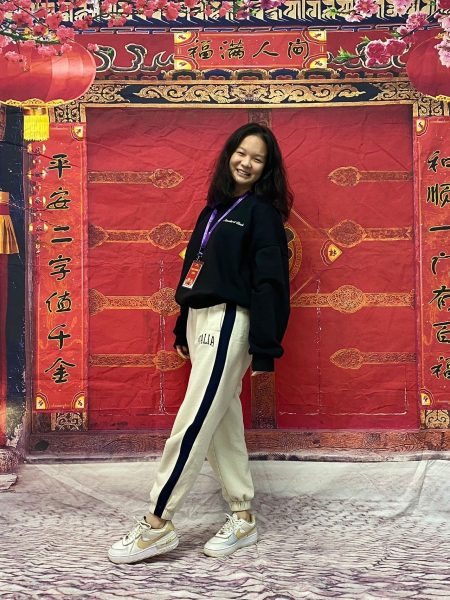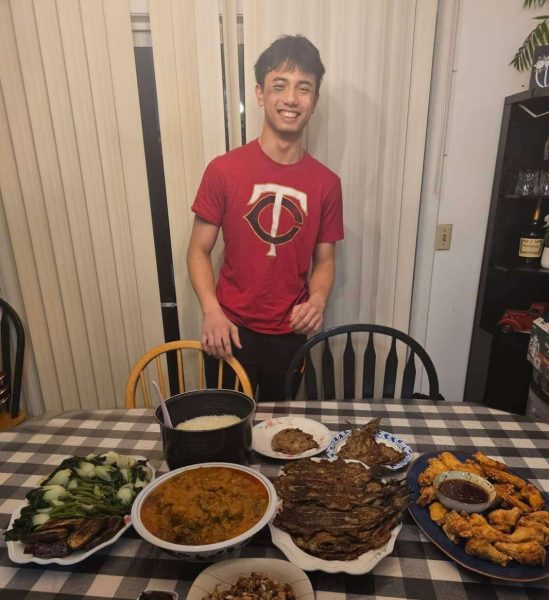Maintaining cultural identity is a part of the Asian American experience, but that experience varies from person to person. There are 19.2 million Asian Americans, and about 57% of Asian Americans were born in a different country, according to a study done by the Pew Research Center in 2021. Does the level of connection to one’s heritage change depending on where they live? Asian Americans at SPA answer.
World History teacher Tam Chau Duong was born in Saigon, Vietnam. Her family moved to the U.S. when she was four years old in the 2000s, first to Los Angeles, California, and then to Minnesota. Duong’s uncles and aunts moved to the U.S. in the 70s after the Vietnam War as refugees. The traumatic effects of the war and her uncles and aunties became the reason for her family’s move to the U.S.
“I feel that I am very connected to my [Vietnamese] roots because I was born there, and so I really believe that my roots…run deep,” Duong said. Growing up, she spoke both English and Vietnamese. Duong says she sometimes was a translator for her parents.
Duong often visited Vietnam. She spent her summers in Vietnam at her grandmother’s house.
“The thought of coming back to the U.S. for a new school year was somewhat sad because I was enjoying my time with family and exploring my hometown…my home away from home,” Duong said. Duong has visited every province in the country through her visits to Vietnam.

Born in Beijing, China, freshman Ann Li said living in China for seven years made her feel more connected to her heritage.
“Growing up [in China], Chinese was my first language… and I was surrounded by Chinese-speaking people and Chinese culture and Chinese customs,” Li said.
Since moving to the U.S., Li also feels the move impacts her connection with her culture.
“Sometimes it’s hard to be immersed in my Chinese culture because being around English-speaking people and people who don’t share the same background as me…So I would have to more intentionally try to do so,” Li said. For example, she makes sure she upholds customs and speaks Chinese.
Sophomore Phillipe Cristobal was born in Minnesota and raised both in Wisconsin and Minnesota. Similarly to Li, Cristobal also finds that the lack of an ethnically familiar community has impacted his connection to his Filipino roots.
“It’s kind of hard to connect with my culture since I’ve lived in a town that was predominantly white and went to school that was predominantly white,” Cristobal said. He thinks that being exposed to a relatively small Filipino community, besides his relatives, influenced his current knowledge about his culture, specifically language.
“I don’t think my parents wanted me to Learn Tagalog, the language of the Philippines because it would be, I guess, too hard on me. Too hard for me to learn it as well,” Cristobal said. He highlights the struggles that came along with that decision: “Now, it’s hard for me to communicate with my cousins and my dad’s extended family [who] speak Tagalog a lot…[My parents] kind of regret not having me learn Tagalog.”

However, Cristobal plans to learn how to speak Tagalog over the summer. Besides language, food plays a large part in how Cristobal experiences his culture.
“Like a big part of my culture is… cooking Filipino dishes… As of this year, I’ve tried to learn how to cook those foods since it’s important to be able to experience that culture,” Cristobal said. Some common Filipino foods are adobo, lumpia, and halo-halo. At the culture fair in January, Cristobal brought halo-halo, a popular Filipino dessert consisting of crushed ice, condensed milk, and various toppings.
“[The Philippines is] definitely the first place my family wants to travel to like when we do start to travel outside of the United States…especially like where my dad [grew up] to meet my extended family,” Cristobal said. To complete the trip to the Philippines, Cristobal looks forward to trying the cuisine and maybe implementing it in his kitchen.
Duong, Li, and Cristobal imagine what their lives would be like if their families hadn’t moved to the U.S.
“I think if my family had not decided to move to the United States, and if we were still living in Vietnam, our lives would be completely different. I don’t know if it’s going to be a positive difference or a negative difference,” Duong said. However, she is grateful that her family had the opportunity to come to the U.S.
Li imagines what her life would be like through her friend who lives in China: “I think I would be a lot more focused and stressed out about school because academics in China are much more rigorous,” Li said. She recalls her friend attending school for ten hours compared to seven hours here at SPA.
“Maybe if we lived in the Philippines, we would probably be where my dad lived, which was a [rural] town [in] Bustos,” Cristobal said.
“I think that life for [my parents] right now is everything that they ever wanted… I am the embodiment of their hopes and their dreams,” Duong said.
It is easier to experience and hold on to language and traditions when living in one’s country of origin. These aspects of culture are less likely to be found in the U.S., but that also makes being connected with one’s culture more valuable. Duong, Cristobal, and Li show that borders can’t contain culture. Whether in the U.S. or the land of their ancestors, their culture lives on.